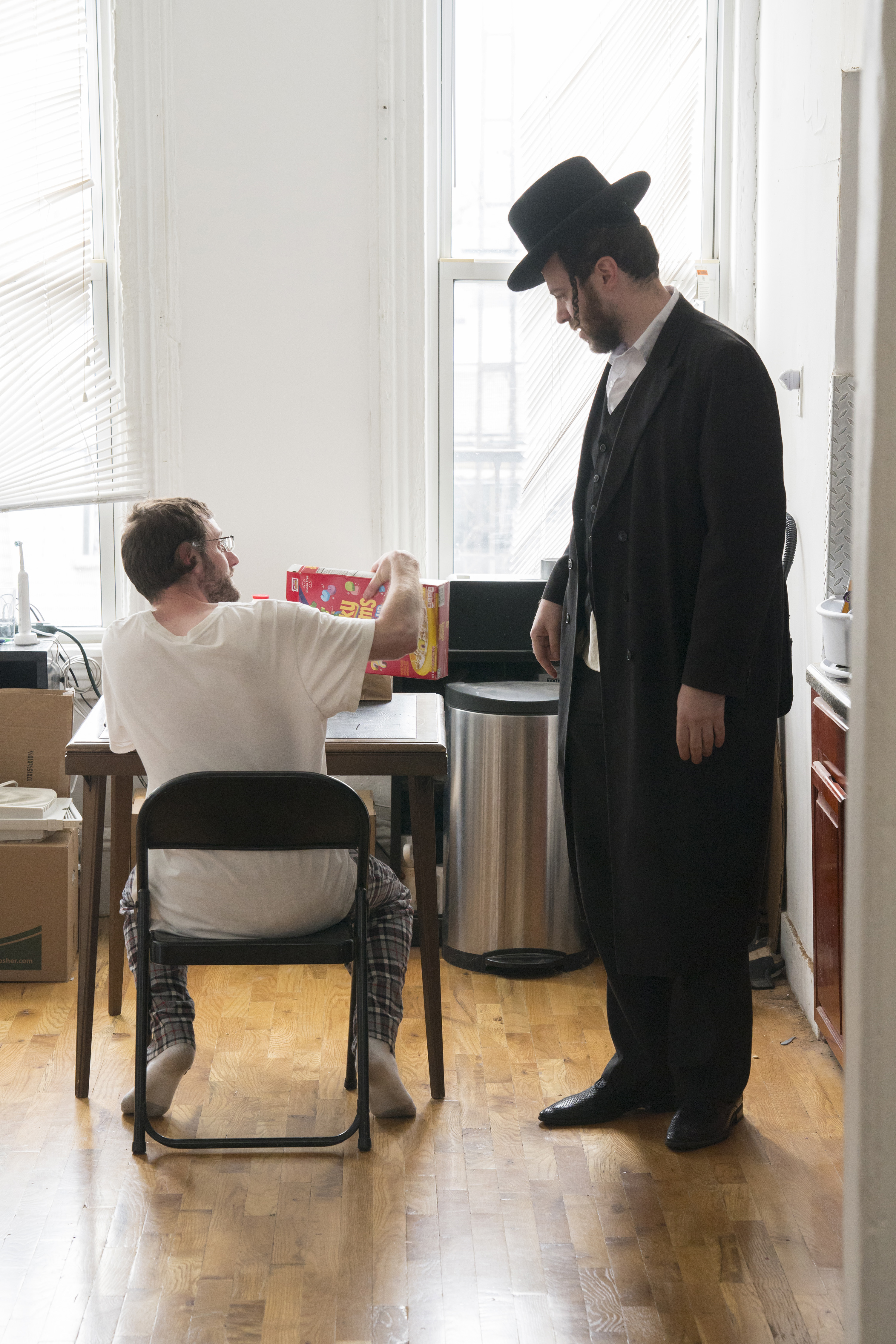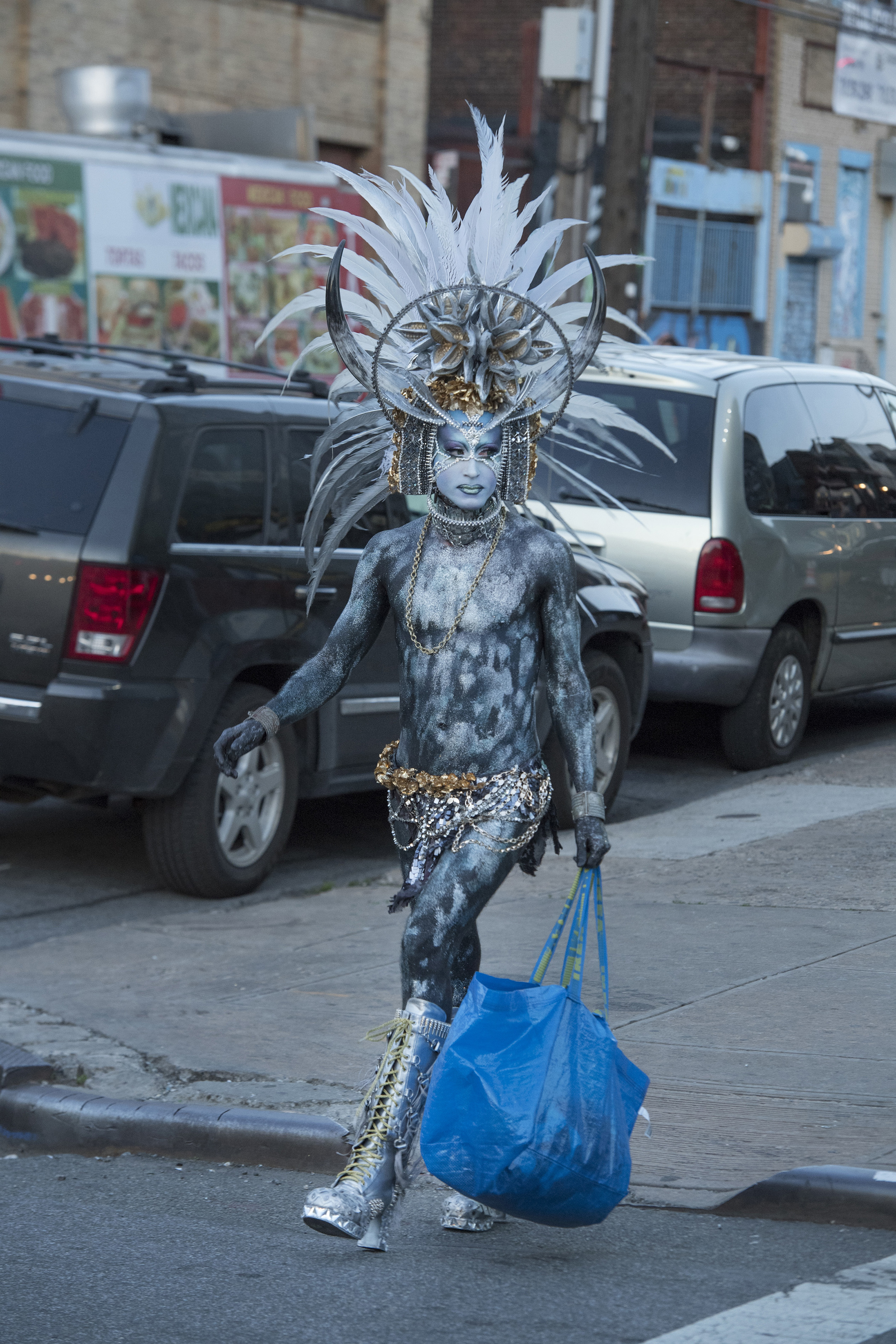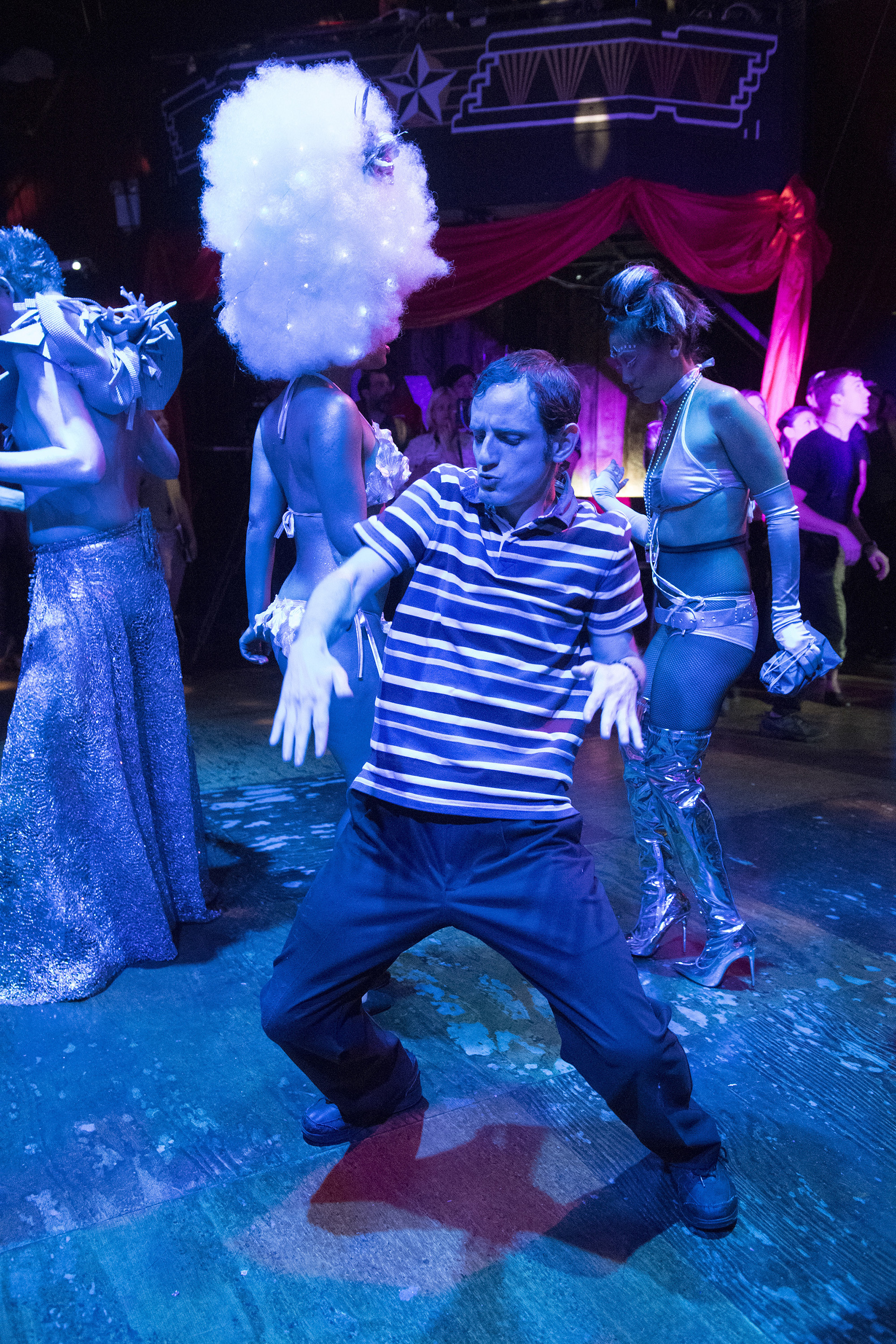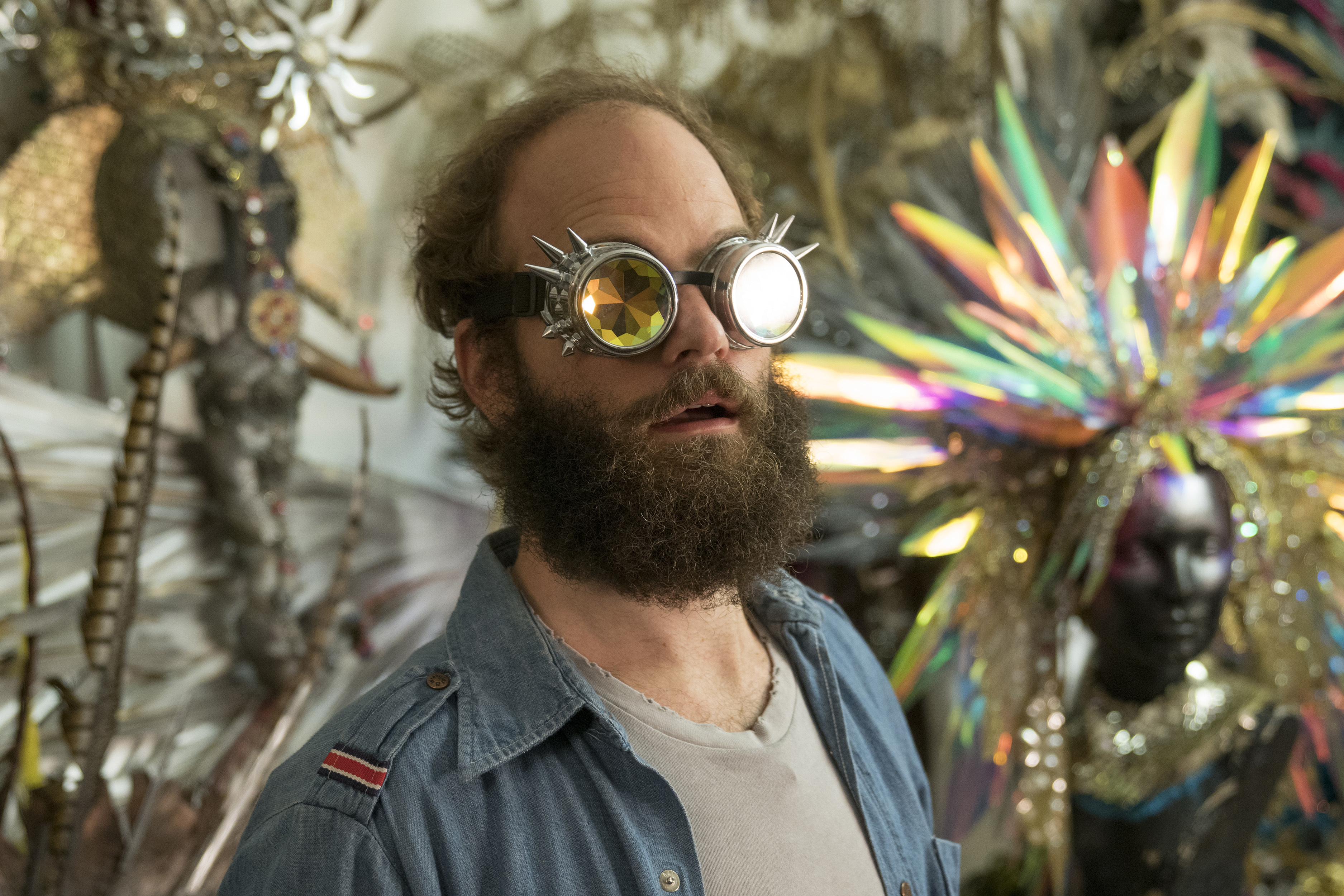When I first heard that High Maintenance — the HBO series that follows a weed dealer in New York City and his rotating cast of customers — would be doing an arc centered on Hasidic Jews who have left the fold, I was worried. Something serious is at stake when a show you love decides to explore a subject close to you. While not Hasidic myself, my Jewish roots placed me in a parallel track of ultra-Orthodoxy that leads me to identify with Hasidic stories depicted onscreen. I may not speak Yiddish or plan to shave my head after marriage, but the restrictions and isolation mentality focused on keeping the religious separate from the irreligious defined my childhood.
In my experience, TV shows and films that tackle Hasidism are generally intriguing but in no way perfect. Nuances are fumbled, the relationship between religion and spirituality is confused, and bad behavior among those considered “pure” is fetishized. How would High Maintenance, a show that treats its many New York characters with sensitivity and open-mindedness, pull off an episode that not only portrays people of my religion but a rare subset of defectors with highly particular struggles?
Warning: Spoilers ahead.
Along with The Guy, the weed dealer played by co-creator and episode writer Ben Sinclair, “Derech” features Anja (Ismenia Mendes), a clueless blogger we first saw in season 1 when she upset The Guy by trying to write an exposé about him without his permission. In this episode we see that he still sells weed to her, despite some residual discomfort in her presence. This time around she’s found a meeting of Hasidic people who have left their religion and she plans to write about them for Vice.
Her in is a young guy named Baruch (Luzer Twersky, himself an ex-Hasid who was featured in the Netflix documentary, One of Us, where you can actually see him filming some of the scenes for this very episode), who may or may not be aware of the ramifications of letting a writer follow him around. Either way, he’s flirting with Anja.

We don’t get a lot of exposition regarding Baruch’s background, but from what I gather he is fluent in Yiddish and English, he does not wear a yarmulke anymore, he has or had a wife, he’s crashing on his friend’s couch, and he’s looking for work. He has a sweet personality and his idea of a compliment is to call a lady “elegant.” The fact that Baruch shaves his beard off but keeps his peyos, his sidecurls, might be indicative of the fact that he still believes in God, even though he’s not entirely observant anymore.
The little gathering Anja infiltrates is a mix of people from different communities: a lesbian couple, one of whom is still married to her none-the-wiser husband. A father of nine who’s still in the community and dressed head-to-toe in the traditional garb. A woman with a Sinéad O’Connor buzzcut and a septum ring. Baruch and his host. They banter in Yiddish, perform familiar Shabbat rituals of singing and blessing wine, unplug their phones, all while playing live music and embracing the fact that none of them are where they started in life.
Later, Anja and Baruch leave to go to a nightclub, where a woman named Marina (Natia Dune) starts to dance with Baruch. She says to him: “You dance like a wild man … You seem free.” The keyword here is “seem”: Leaving a religion is all about covering up what is and making it seem like something else. In order to assimilate, you must pretend that it’s possible first. Anja sees them together and decides to go for a different drunken hook-up, after which Baruch gives up on her. He and Marina go to get some sandwiches from a corner store. Baruch starts to choke on a bite of his bagel and falls unconscious.
Thus enters Elijah the Prophet.

By my interpretation, anyway. Behold the visage of a performer from the club they just left (Darrell Thorne), bedecked in an extravagant celestial-themed ensemble and headpiece with flawless galactic body makeup, as he goes about rigging an airway for Baruch through his trachea. He claims to be a doctor and at this point in the story, we have no choice but to believe him as he rips open a pen with his teeth to get out the tube and stick it in Baruch’s neck. He saves Baruch’s life. End scene.
Stories of Elijah are common in Jewish lore. He appears when all hope is lost to save the day. But something about this particular incarnation also informs the themes of the episode. Because to Marina, and possibly to Baruch once he awakens, the nightclub performer might have just appeared out of thin air. But we the viewers have been tracking him all night. His storyline is told alongside Baruch’s. In his Uber Pool on the way to the club, the other passenger calls him out passive aggressively for not saying “bless you” – to which he gives a charming, sphinxlike smile. Backstage at the club, The Guy visits him and his fellow dancers, and they all sing along to an impromptu ditty about Elisabeth Shue. By the end of the episode he’s on an epic quest in search of contact lens solution, which takes precedence as soon as he knows Baruch is breathing again.
There are two ways to look at a miracle.
A merging of fates, paths crossing at exactly the right moment, as ordained by God. Or nature taking its course – a contact solution run coincidentally leading a doctor to a medical emergency – with no mystery about it.
In this episode, Sinclair, who’s Jewish himself (and the son of a cantor, no less), clearly took pains in his writing to strike the right balance between an outsider’s view of this community and commentary for those who are in the know. Anja provides an entry point for the unaffiliated, while there is some pretty darn funny humor for viewers familiar with the faith: The guy who jokes that he doesn’t touch women is referring to ultra-Orthodox Jews who are shomer negiah, who don’t touch members of the opposite sex. Asking if the weed is “kusher,” a portmanteau of Kush and kosher. Baruch’s enthusiasm for a tuna bagel is funny (or perhaps it’s meant earnestly?), because the slang terminology for a Hasid who tries blend in with secular society is a Tuna Baigel. The name of the episode itself comes from the term “Off The Derech,” or OTD, which literally means off the path. It’s a term used to describe Jews who were once ultra-Orthodox but have since made the decision to leave the fold.
Not all of the commentary lands, however. Two lines in particular struck me as quite antiquated. The first is when Anja asks Baruch: “Is it true what they say about the hole in the sheet?” referring to a long-standing myth that Hasidim have sex through a hole in a sheet. For Sinclair to reference what amounts to a rumor with its own Snopes page is a strange choice. Anja may be a delusional millennial, but if she’s knowledgeable enough to talk about Hatzalah, the Jewish volunteer ambulance service, she wouldn’t be asking such an ignorant question. Similarly but not as heinous, Marina’s question about whether Hasidim used curling irons to get their peyos to corkscrew is neither surprising nor enlightening.
On the other hand, I found Baruch’s dance style in the nightclub to be a very creative decision. An easy parallel would have been to associate club dancing with the hora dancing common at Jewish weddings. Dance is very important in Hasidic culture, used to express joy at celebrations but also as part of communal rituals. But that’s not what Baruch is doing. His style has more in common with festival dancing, with rave dancing, than anything religious. He isn’t trying to copy the club dancers around him, either. Baruch is in his own world when he dances.

Is “Derech” successful? I’m pleased that Sinclair is able to offer insight in the form of a snapshot, a day in the life, as he’s done in many High Maintenance storylines. Is it a new story? Not particularly. There have been quite a few stories of “naughty Hasidim,” and I would have liked to hear more about the women at the gathering.
But I do feel that the episode captured the struggle and aimlessness that manifest after leaving a tight-knit community. The characters are all seeking their own version of freedom, after all, whatever that may look like to them, and this small slice of their lives provides a refreshing and nonjudgmental vantage point.



